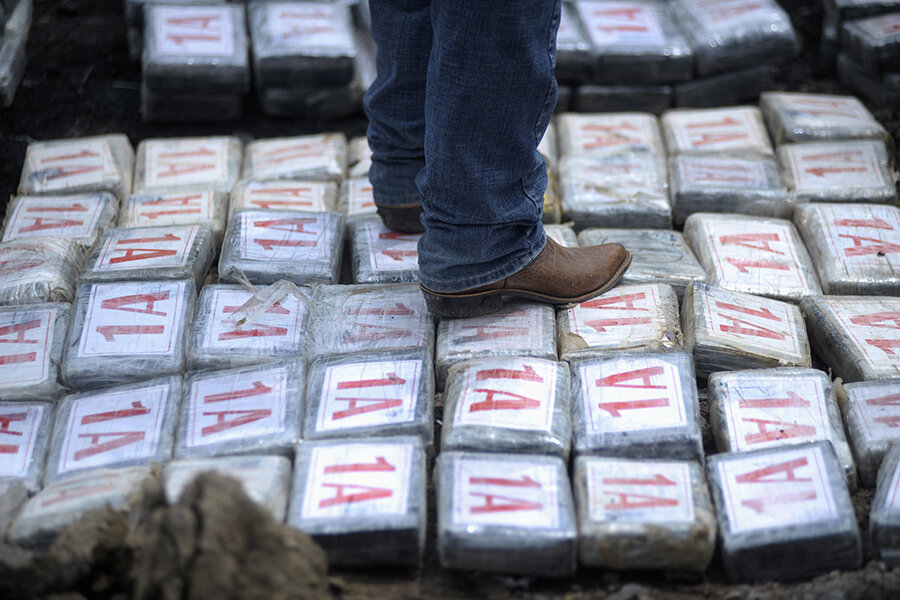Drug trafficking in Central America wreaking havoc on forests, study finds
Loading...
It is time to rethink the war on drugs from the perspective of "narco-deforestation," say researchers, who have expressed concern over disappearing Central American rainforest .
In a paper published in journal Science, researchers stated that in remote areas of Honduras, Guatemala, Nicaragua, and neighboring countries, drug traffickers are destroying forests, often protected areas, to make way for clandestine landing strips and roads to move drugs and money.
Vast stretches of forest are also cleared to set up agribusinesses, primarily-cattle ranching, to launder drug money, Erik Nielsen, assistant professor in the School of Earth Sciences and Environmental Sustainability at Northern Arizona University, told the Monitor.
Much of the deforestation is happening as a response to US-led anti-trafficking efforts, especially in Mexico, says Kendra McSweeney, lead author of the paper and an associate professor of geography at Ohio State said in an Ohio State press release.
“In response to the crackdown in Mexico, drug traffickers began moving south into Central America around 2007 to find new routes through remote areas to move their drugs from South America and get them to the United States,” said Dr. McSweeney.
McSweeney, a geographer and her team did not initially aim to study the murky world of drug trade, but they had to take a detour and examine the environmental problems caused by it, she said.
Areas with a high rate of drug trafficking also recorded a large-scale deforestation, says Dr. Nielsen. So there was a direct correspondence between "hot spots" of deforestation and trafficking "nodes."
The researchers found that the amount of new deforestation per year jumped more than fourfold in Honduras between 2007 and 2011 – the same period when cocaine movements in the country also spiked.
“Starting about 2007, we started seeing rates of deforestation there that we had never seen before. When we asked the local people the reason, they would tell us: “los narcos” (drug traffickers)," said McSweeney. “I would get approached by people who wanted to change $20 bills in places where cash is very scarce and dollars are not the normal currency. When that starts happening, you know narcos are there."
“When drug traffickers moved in, they brought ecological devastation with them," she added.
As a larger part of the solution, what is required is a very broad multi-lateral discussion about drug policy reform which include unattended causes, such as, deforestation, McSweeney says.








